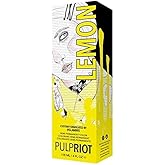In an age where prescription medication abuse and accidental overdoses are prevalent, ensuring the safe storage of medications has become essential. One effective solution is the use of a medication lock box. These secure storage solutions not only help in organizing medications but also play a significant role in promoting safety and health. In this article, we will explore the top five benefits of using a medication lock box, supported by research and real-world examples.
1. Enhanced Safety for Children and Vulnerable Individuals

One of the most significant advantages of using a medication lock box is the enhanced safety it provides, particularly for children and vulnerable individuals. Accidental ingestion of medications can lead to severe health complications or even fatalities.
- Preventing Child Access: According to the American Association of Poison Control Centers, over 60,000 children under the age of 5 are treated in emergency rooms annually for unintentional medication ingestions. A lock box can mitigate this risk by keeping medications out of reach.
- Protecting Vulnerable Adults: Individuals with cognitive impairments, such as dementia patients, may inadvertently misuse medications. A lock box ensures that these medications are securely stored and accessed only by caregivers.
For instance, a case study from a family in Ohio highlighted how a medication lock box saved their child’s life. After a toddler accidentally ingested a family member’s antidepressants, the parents installed a lock box, leading to zero incidents since then.
2. Reduction in Prescription Drug Abuse

The opioid epidemic has underscored the importance of responsible medication storage. A medication lock box serves as a deterrent against prescription drug abuse, especially in households where medications are accessible to teens or visitors.
- Statistics on Prescription Drug Abuse: The National Institute on Drug Abuse states that approximately 70% of people who misuse prescription drugs obtain them from friends or family. Locking medications can help prevent unauthorized access.
- Encouraging Responsible Use: When medications are stored securely, it encourages users to be more mindful about their consumption. This can reduce the likelihood of misuse or overuse.
A survey conducted by the American Society of Addiction Medicine revealed that 71% of respondents believed that keeping medications in a lock box would significantly decrease the chances of misuse and abuse.
3. Organization and Accessibility

Medication lock boxes are designed not just for security but also for organization. This makes it easier for users to manage their medications effectively.
- Structured Storage: Many lock boxes come with compartments to separate different types of medications, making it easier to find what you need when you need it.
- Medication Reminders: Some advanced lock boxes are equipped with timers or alerts, reminding users when it’s time to take their medication.
For example, a research study published in the Journal of Managed Care & Specialty Pharmacy indicated that patients who organized their medications using a lock box were 30% more likely to adhere to their prescribed routines. This improved adherence can lead to better health outcomes, reducing hospital visits and healthcare costs.
4. Peace of Mind for Caregivers

For caregivers, whether family members or professional health aides, a medication lock box provides peace of mind. Knowing that medications are securely stored allows caregivers to focus on providing care rather than worrying about potential accidents or misuse.
- Confidence in Safety: Caregivers can feel secure knowing that children and vulnerable individuals cannot easily access medications, reducing their anxiety about potential emergencies.
- Streamlined Medication Management: A lock box allows caregivers to manage multiple medications for different individuals efficiently, ensuring that each person receives the correct dosage at the right time.
A study in the Journal of Gerontological Nursing highlighted that caregivers reported feeling less stressed and more in control of their responsibilities when using medication lock boxes. This, in turn, leads to better care for those they support.
5. Compliance with Legal and Regulatory Standards

As the healthcare landscape evolves, so do the legal and regulatory requirements surrounding medication storage and management. Using a medication lock box can help individuals and institutions comply with these standards.
- HIPAA Compliance: For healthcare facilities, proper storage of medications is essential for compliance with the Health Insurance Portability and Accountability Act (HIPAA). A lock box ensures that sensitive medications are stored securely and accessed only by authorized personnel.
- State Regulations: Many states have implemented specific regulations regarding the storage of controlled substances. Utilizing a lock box can help ensure that these regulations are met.
For example, a nursing home in California faced fines due to improper medication storage. After implementing a comprehensive medication management system that included lock boxes, the facility not only complied with state regulations but also improved patient safety.
Conclusion: The Importance of Medication Lock Boxes

In summary, the use of a medication lock box offers numerous benefits that extend beyond basic medication storage. From enhancing safety for children and vulnerable individuals to reducing the risk of prescription drug abuse, these lock boxes play a crucial role in promoting health and safety. They provide organization and accessibility, give peace of mind to caregivers, and help ensure compliance with legal standards.
As the statistics and examples illustrate, a medication lock box is an investment in safety, health, and well-being. Whether you’re a caregiver, a parent, or someone managing your own medications, consider implementing a medication lock box to secure your medications and enhance your peace of mind.




